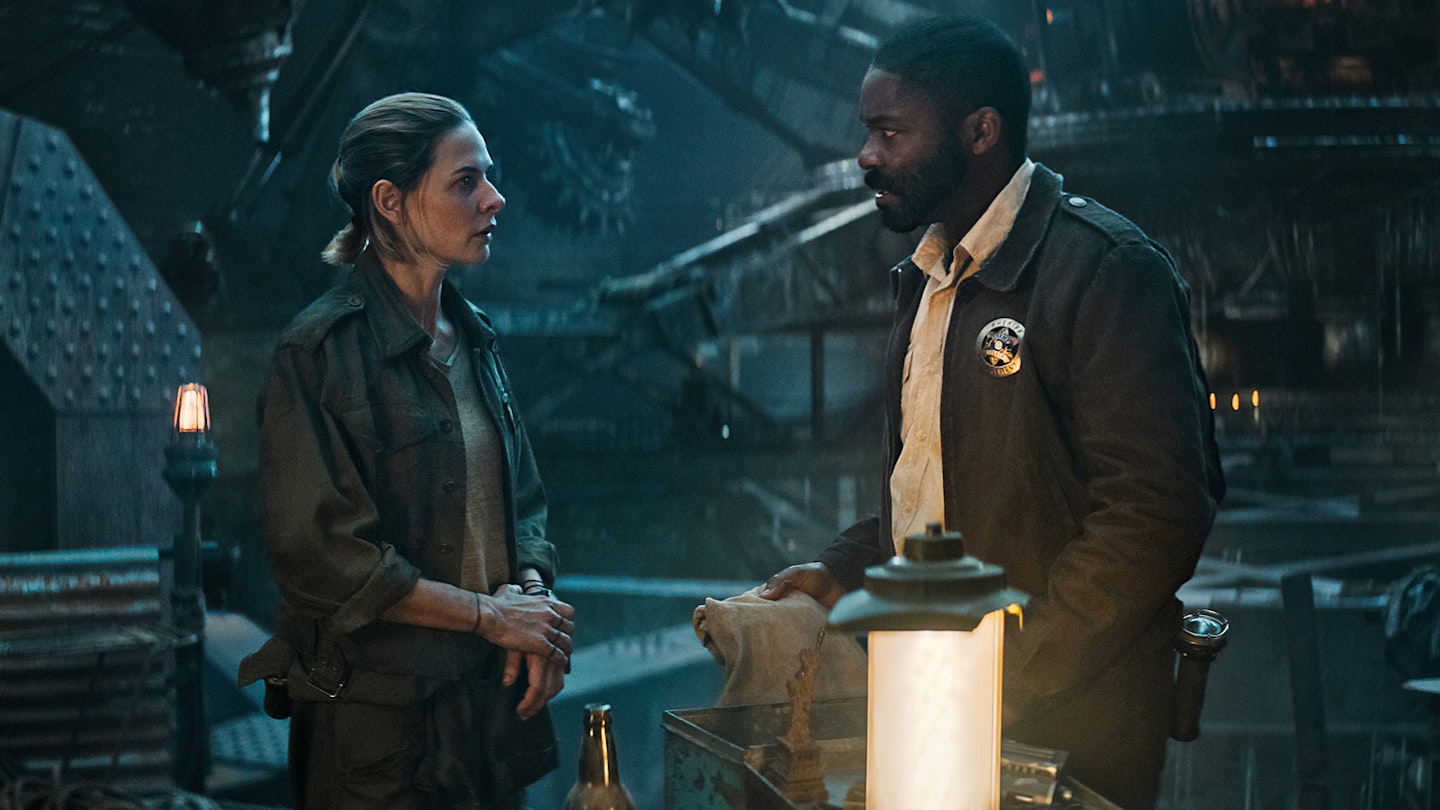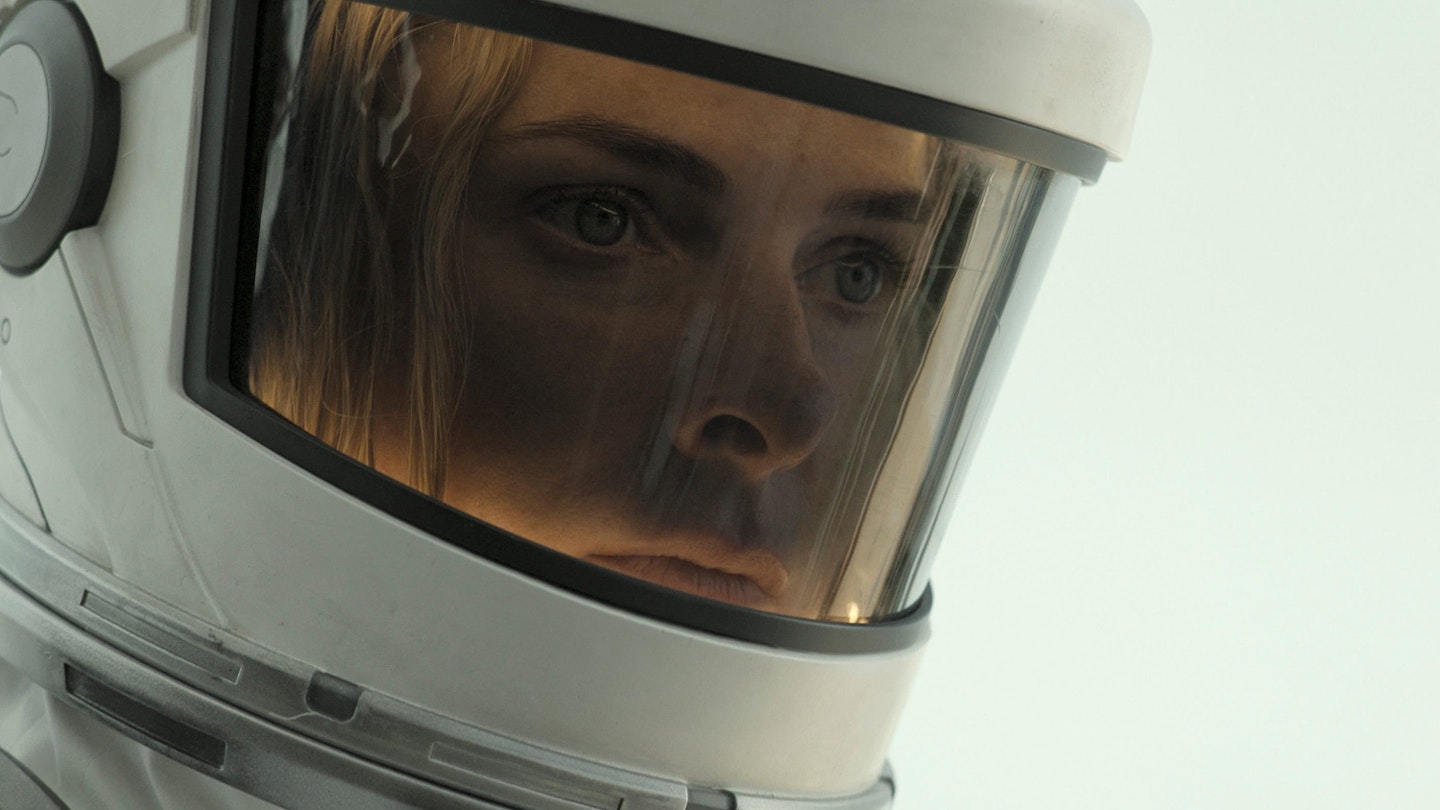Streaming on: Apple TV+
Episodes viewed: 10 of 10
Dystopias are the new utopias — at least for streaming services looking for their next bingeable hit. Apocalyptic fiction is all the rage at the moment, and Apple, with their deep pockets and HBO-esque taste, have been proving themselves specialists of the form (see also: See, Severance, Extrapolations, Invasion, Finch). Silo, their latest entry in an increasingly crowded subgenre, is adapted from the popular book series by Hugh Howey, and to some degree follows the rulebook of its peers: like Snowpiercer (except set in a big hole, rather than a big train) it follows the last humans on Earth, trapped together in a confined space, the strict delineation of its society providing neat social commentary on the class systems of our own world.

As blunt as that reads, what soon emerges in Silo is a riveting puzzle-box mystery of a series, which across its ten episodes borrows elements of Swiftian satire, chilly Cold War-era political conspiracies, dusty small-town Western showdowns, doing-the-work police procedurals, and even philosophical thought experiments; it is, essentially, a big-budget adaptation of the Plato’s Cave allegory.
It certainly helps that this particular cave here is massive and immersive: a mile-deep multi-storey Noah’s Ark for an unknown historic apocalypse, a bit like Zion from The Matrix if it was designed by concrete-obsessed Soviet-era architects. Helped by expensive-looking production design and CGI, the world-building here is rich and compelling, summoning a claustrophobic universe where any memory of the extinction-level event is lost and people go about their lives in a fragile bureaucratic bliss.
There is a thrilling riddle to unfurl here, rich with real-world implications and analogies.
Into this highly-controlled pressure cooker comes David Oyelowo’s Sheriff, Holston. Elliptical storytelling tracks both Holston and his wife Alison (Rashida Jones) as they veer from being good citizens of the Silo to questioning everything about it. From the second episode onwards, Rebecca Ferguson takes over as series lead, playing an engineer boasting a near-telepathic relationship with the Silo’s power generator and a sceptical approach to authority; it’s a perspective switch that might prove jarring in a less capable actor’s hands, but Ferguson brings just the right level of sharp-eyed intensity required — as if parachuted in from a Scandi noir, sans knitwear.
The drama unfolds slowly and surely, and in its early hours you sometimes wonder if they’re stalling for time — episode three largely centres around some essential repairs and maintenance, on paper about as exciting as a visit from a British Gas; though in lead director Morten Tyldum’s hands, to be fair, surprisingly tense. Gradually, things kick into gear, seemingly irrelevant plot threads come into focus, and the bodies start piling up. An engrossing power struggle emerges between the Sheriff’s Department and the shady Judicial Department, who seem to operate like a Stasi-esque secret police, driving families apart with suspicions and secrets. Tim Robbins is especially brilliant here, playing a dry IT autocrat with a nice line in cold stares, and the show is bolstered by a wealth of veteran British thesps, too (Harriet Walter, Geraldine James and Iain Glen all put in memorable turns).
Naturally, like any dystopia worth its salt, Silo also comes pre-packaged with its own faintly silly in-universe vernacular: there is much talk of the "before-times”, “the Pact”, the “down-deep” and the “up-top”. People here say “Thank the founders!” (not unlike C-3PO’s “Thank the maker!”), the mysterious creators of the Silo solemnly revered as if a paganistic cult. But if you can accept the outlandish genre trappings and the largely dour tone, there is a thrilling riddle to unfurl here, rich with real-world implications and analogies.
At its best, the show plays similarly to Andor in its account of small acts of resistance against mighty unseen oppressors, the tension bubbling slowly until it can only boil over. Central to the whole show is the question of a big lie being told to the residents of the Silo. But what is it, told by who, and for what purpose? Ingeniously, showrunner Graham Yost offers just enough to sate you by the final episode, while simultaneously leaving you desperate for future seasons. Bring on the apocalypse, if it’s this entertaining.







